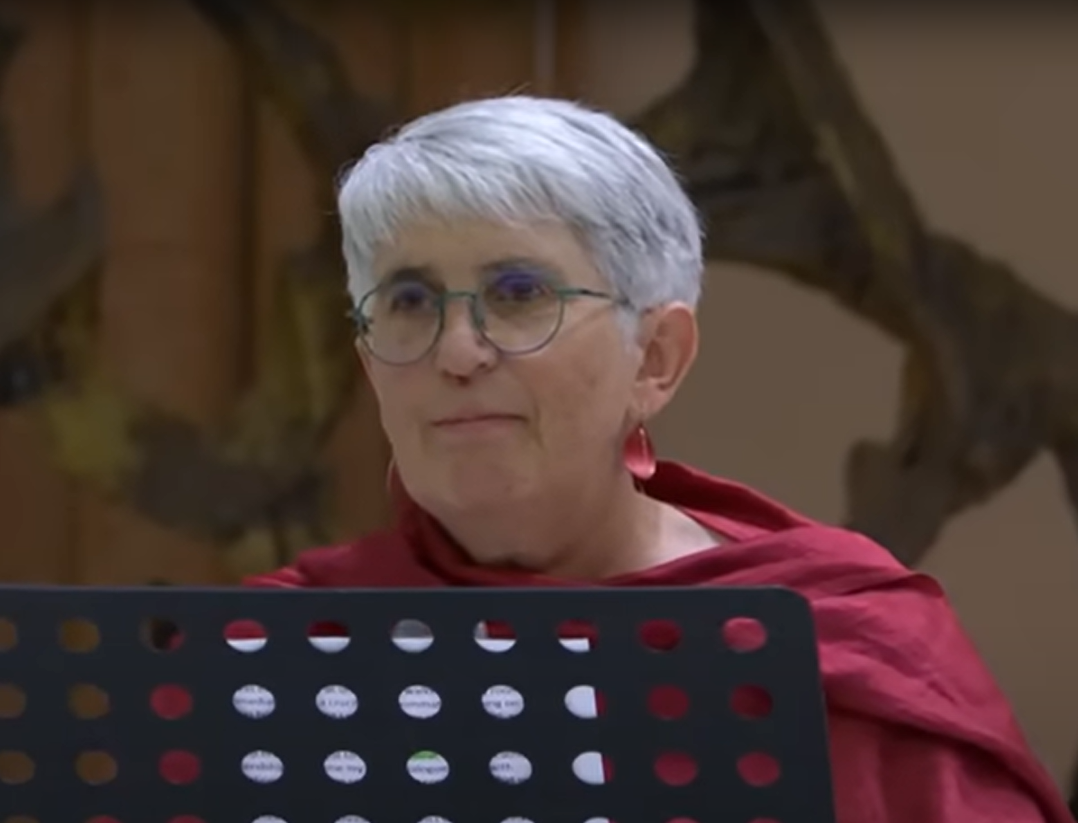On being Jewish, the crucifix, and Nostra Aetate
Sarah Bernstein, executive director of the Rossing Center for Education and Dialogue in Jerusalem, spoke at the Vatican. For her, Nostra Aetate, promulgated by the Second Vatican Council 60 years ago, teaches that dialogue must address the burning realities people may seek to avoid. Attacks by Jewish extremists on Christians and Muslims and their places of worship betray the very foundation of being Jewish. Leo XIV said, “The Church cannot tolerate anti-Semitism”.
Vatican City (AsiaNews) – During this morning's general audience marking the 60th anniversary of the declaration Nostra Aetate, Pope Leo XIV placed particular emphasis on the relationship between the Church and the Jewish people, which reached a crucial turning point in the Second Vatican Council document.
In his address, the pontiff said that “the Church does not tolerate anti-Semitism and fights against it, on the basis of the Gospel itself.” These words are particularly relevant in the context of the misunderstandings that have arisen over the past two years over the tragic war in Gaza.
Dr. Sarah Bernstein, executive director of the Rossing Center for Education and Dialogue in Jerusalem, spoke yesterday evening during the official commemoration of the conciliar document in the Paul VI Hall in the Vatican, specifically addressing the relevance of the direction Nostra Aetate has given to relations between Christians and Jews, even at this challenging time.
In her address, she shared her personal experience as an Israeli Jew in dialogue with Christians. The full text of her speech is below.
Shalom, Salaam, good evening.
It was my first day at university. I walked into my room and immediately saw a crucifix my roommate had hung on the wall. I was horrified. Here I was, a 19-year-old Jewish girl, and I had to sleep in a room with a crucifix?
I considered changing rooms. I called my mother, who said, “You’ll be fine.” And so I took a deep breath and got to know Caroline, a devout Catholic. Our friendship overcame my fears.
Dialogue begins with relationship, but I've seen that the connections that survived times of crisis are those built on honest conversations, however hard. The work is to address our most sensitive and instinctive reactions, like the threat I felt when I saw that crucifix.
Nostra Aetate was a brave, revolutionary call to struggle with deeply held negative beliefs about other faiths. As a Jew, I am profoundly grateful for it.
The interreligious challenges sometimes seem overwhelming, but Nostra Aetate taught us that dialogue must work through the burning realities of our day, even if we might prefer to avoid them. In Israel-Palestine, that means we must address our national differences, as well as religious.
Nostra Aetate emphasised the Jewish background of Jesus, Mary, and the apostles. For many Palestinian Christians today, the Jew is the Israeli soldier who stops and searches them at a checkpoint.
Context is everything.
Since October 7th, despair has been an ever-present temptation. I have felt profound sorrow for those killed and taken hostage, anguish over the devastation in Gaza, and shame over the moral blindness within my society.
I am immensely troubled by the rise in extremist Jewish attacks on Christians and Muslims and their religious sites.
They betray the foundations of who we are as Jews. They are wrong. I am also dismayed about the global rise of anti-Semitism and Islamophobia. The task of Nostra Aetate is not yet complete.
At the Rossing Center for Education and Dialogue, our Jewish, Christian, and Muslim team brings Israelis and Palestinians together to listen, learn, and heal.
Even during this terrible war, our "Healing Hatred" methodology, rooted in tools of spiritual counselling, has helped us sustain dialogue when in so many places in the world it has broken down.
In the spirit of Nostra Aetate, we face up to the deeply held beliefs that divide us.
Each training, whether for religious leaders or educators, each workshop where adults or children are taught to respect rather than hate, each expression of empathy: these practical acts change our reality.
As one participant said, “You can Google Christmas, but you can’t Google making befriends with your enemy."
The Palestinian intellectual Edward Said taught: “Where cruelty and injustice are concerned, hopelessness is submission."
To give up would be to collude with the darkness. We must resist despair; we must insist on hope as a moral imperative.
Hope is not only a feeling. It is a series of actions, a conscious daily decision to continue working for change, even when the odds seem impossible. For me, an Israeli Jew in 2025, that is the lesson of Nostra Aetate.
* executive director of the Rossing Center for Education and Dialogue in Jerusalem







.png)










